Recently, my company received a lawyer’s letter from MDK, leaving us no choice but to use open-source or free IDE tools. Considering various factors, I ultimately decided to use the STM32CubeIDE provided by STMicroelectronics. I found that there are relatively few tutorials on CubeIDE available online, which inspired me to create a collection of tutorials to share some tips for using STM32CubeIDE. This tutorial is based on the HAL library! (STM32CubeIDE will automatically update components, so it is recommended to keep it updated to the latest version.)
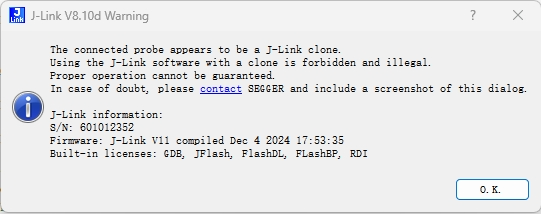
Once upon a time, STM32CubeIDE also started to learn from MDK and began detecting clone J-Link devices, which is indeed quite annoying. There are many tutorials online for MDK, and I have verified that the general idea is to install a lower version of the J-Link driver and then replace some of the J-Link driver files in the system with those from the MDK package to avoid being detected as a clone. So what should we do if STM32CubeIDE identifies J-Link as a clone? The general approach is similar. I have summarized the suggestions from various experts online and conducted some tests, which I will share with you today.
First, my version is 1.17.1, and J-Link automatically upgraded to V8.10d, which was then identified as a clone version, as shown in the image above.

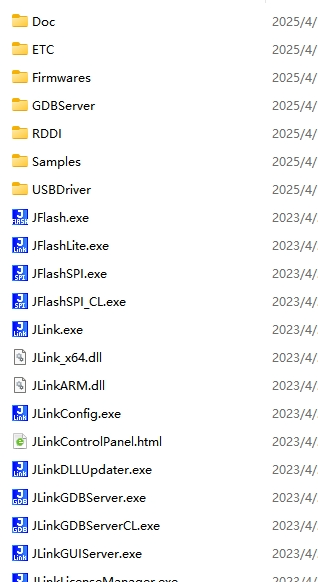
The general idea is also to replace files, specifically to replace the J-Link related Bin files from a lower version of STM32CubeIDE with those from a higher version. The specific file location is x:\ST\STM32CubeIDE_x.xx.x\STM32CubeIDE\plugins\com.st.stm32cube.ide.mcu.externaltools.jlink.win32_x.x.x.xxxxxxxx\tools\bin. Of course, a reminder: make sure to back up the high version files being replaced, just back up the bin folder, so you can restore it in case of failure.
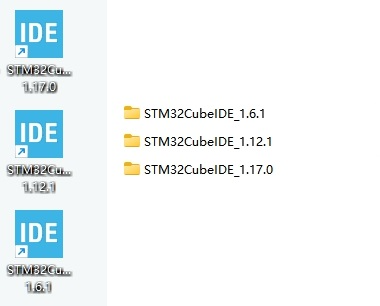

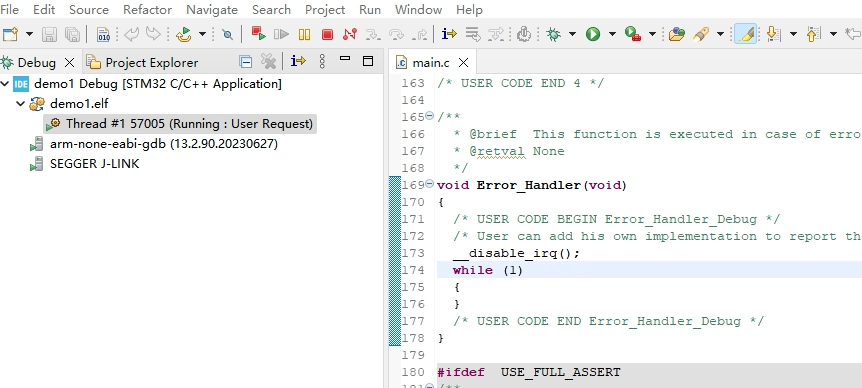
First, not all lower versions can be used as replacements. Initially, I used the bin files from the lowest version of STM32CubeIDE 1.6.1, but it resulted in an error indicating that the ST device could not be confirmed. This made me seriously doubt the methods suggested by experts online. However, with a mindset of trying again, I downloaded a slightly higher version, 1.12.1, which also cannot be too high, as higher versions will automatically be recognized as “clones.” So I tested version 1.12.1, and it worked; I could directly replace the files in version 1.17.1, successfully bypassing the detection, allowing me to write code and debug the board smoothly.

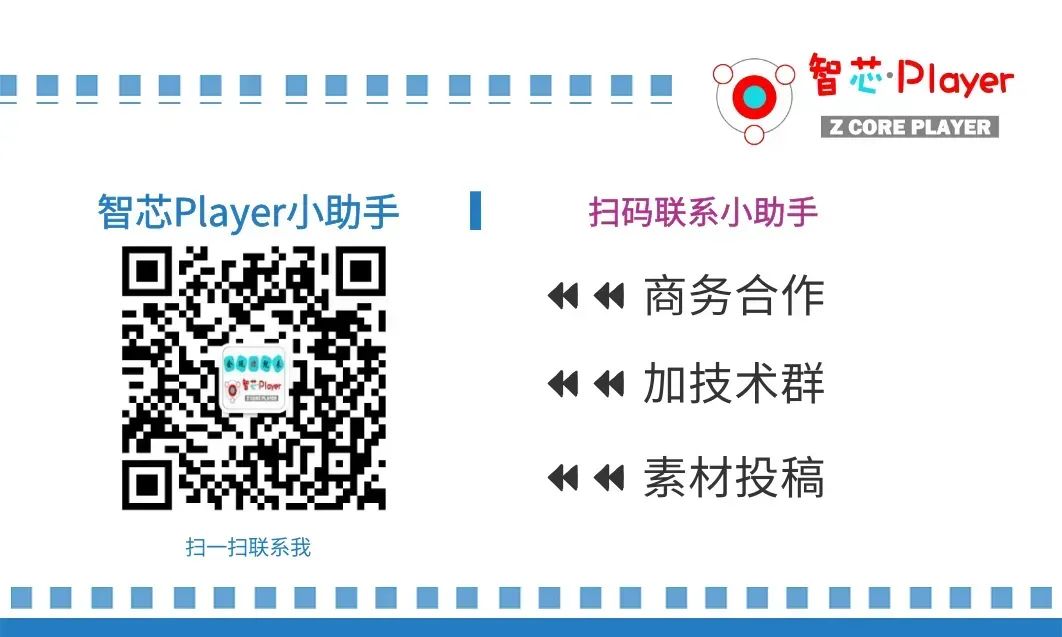 Product Hardware and Software Solutions Collection👆👆👆(Click to enter the collection)
Product Hardware and Software Solutions Collection👆👆👆(Click to enter the collection)
This collection mainly shares mature product solutions, all shared solutions includea complete set of hardware circuit materials and accompanying software code, some materials include design manuals, simulation models, etc., which are invaluable resources for engineers to learn from. All solution materials introduced in this collection can be obtained by replying with the corresponding material code in the corresponding solution introduction article on the public account!
CircuitSolution Collection👆👆👆(Click to enter the collection)
This collection mainly shares hardware circuit solutions for mature products, including switch power supplies, chargers, UPS, etc. All circuit solution materials introduced in this collection can be obtained by replying with the corresponding material code in the corresponding solution introduction article on the public account!
Altium Designer Package Collection👆👆👆(Click to enter the collection)
This collection mainly shares PCB packages for Altium Designer, including 2.4G PCB antennas, general connectors, passive components, chips, modules, transformers, etc.,all packages come with exquisite 3D models, ready to use, which can save engineers time in creating packages and finding matching 3D files.This collection of packages is updated regularly!All packages introduced in this collection can be obtained by replying with the corresponding material code in the corresponding solution introduction article on the public account!
EMC KnowledgeCollection👆👆👆(Click to enter the collection)
This collection organizes and shares basic knowledge of EMC, including filtering, shielding, grounding, etc. Additionally, it will share actual EMC and EMI-related experiments and rectification cases,hoping that many engineer friends can share their practical experiences so that we can all improve together!
PADSPackage Collection👆👆👆(Click to enter the collection)
This collection mainly shares PCB packages for PADS, including 2.4G PCB antennas, general connectors, passive components, chips, modules, transformers, etc.,all packages come with exquisite 3D models, ready to use, which can save engineers time in creating packages and finding matching 3D files.This collection of packages is updated regularly!All packages introduced in this collection can be obtained by replying with the corresponding material code in the corresponding solution introduction article on the public account!
PADSQuick Q&A Collection👆👆👆(Click to enter the collection)
This collection shares a summary of problems encountered with the PADS software in daily work, including error handling, software tips, etc., serving as a practical series of helper manuals, keep it handy! The software version is mainly based on PADS 9.5, and any features unique to newer versions will be noted at the beginning of the article!
Learning STM32 Without Development Boards Collection👆👆👆(Click to enter the collection)
This collection is based on Proteus, sharing simulation projects for STM32 series chips. It aims to create an innovative learning model for STM32 without the need for hardware development boards.All solution materials introduced in this collection can be obtained by replying with the corresponding material code in the corresponding solution introduction article on the public account!
DIY Disassembly Collection👆👆👆(Click to enter the collection)
Face yourself, confront the selfish, petty, vain, jealous, and rebellious dark side…
Classic PPT Collection👆👆👆(Click to enter the collection)
This collection mainly shares classic PPTs related to electronics, embedded systems, and electrical engineering, sourced from major company training, prestigious university open courses, and popular online content.All PPTs can be read online without downloading.
Basic Knowledge and Selection of Electronic Components Collection👆👆👆(Click to enter the collection)
This collection introduces a complete set of knowledge related to electronic components and their selection, including resistors, inductors, capacitors, wires, transistors, diodes, MOSFETs, etc.
Fun TrialsSeries👆👆👆(Click to enter the collection)
This collection mainly shares experiences with various boards, development boards, instruments, etc., including my own evaluations or trial processes, as well as related evaluations or trial processes submitted by netizens.
PCB Knowledge Base Collection👆👆👆(Click to enter the collection)
This collection mainly shares knowledge related to PCBs, including manufacturing, raw materials, stacking, high-speed PCBs, etc.
Industry Reports👆👆👆(Click to enter the collection)
This collection mainly shares analysis reports from various institutions regarding related industries, including medical, semiconductor, automotive, industrial, IoT, industry salaries, etc. All reports can be read online without downloading.
Hardware Solution Analysis👆👆👆(Click to enter the collection)
This collection mainly analyzes the hardware circuits of mature products, including PCB layout, impedance distribution, unique methods, etc. It focuses on PCB layout, and I will share my limited knowledge to discuss the characteristics of a certain product’s circuit PCB layout, allowing readers to validate and learn from their own work experiences.
Circuit Analysis👆👆👆(Click to enter the collection)
This collection mainly shares circuit design-related problems raised by engineers in forums or study groups, analyzing how netizens solved these problems, as well as my views and final solutions to these issues.
Microcontroller Knowledge Hub👆👆👆(Click to enter the collection)
This collection shares knowledge related to microcontrollers, mainly including embedded programming, useful open-source libraries, and issues encountered during actual project development.
STM32Cube Tips👆👆👆(Click to enter the collection)
I found that there are relatively few tutorials on CubeIDE available online, which inspired me to create a collection of tutorials to share some tips for using STM32CubeIDE. This tutorial is based on the HAL library!
 Clicktoencourageme!Thank you!
Clicktoencourageme!Thank you!